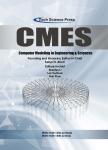Blockchain-Assisted Unsupervised Learning Method for Crowdsourcing Reputation Management
作者机构:Department of Cyberspace SecurityGuangzhou UniversityGuangzhou51006China Institute of Artificial IntelligenceGuangzhou UniversityGuangzhou51006China Center of Young ScholarsPazhou LabGuangzhou510335China
出 版 物:《Computer Modeling in Engineering & Sciences》 (工程与科学中的计算机建模(英文))
年 卷 期:2024年第140卷第9期
页 面:2297-2314页
核心收录:
学科分类:12[管理学] 1201[管理学-管理科学与工程(可授管理学、工学学位)]
基 金:This work is supported by National Natural Science Foundation of China(Nos.U21A20463,62172117,61802383) Research Project of Pazhou Lab for Excellent Young Scholars(No.PZL2021KF0024) Guangzhou Basic and Applied Basic Research Foundation(Nos.202201010330,202201020162,202201020221)
主 题:Crowdsourcing reputation management blockchain
摘 要:Crowdsourcing holds broad applications in information acquisition and dissemination,yet encounters challenges pertaining to data quality assessment and user reputation *** mechanisms stand as crucial solutions for appraising and updating participant reputation scores,thereby elevating the quality and dependability of crowdsourced ***,these mechanisms face several challenges in traditional crowdsourcing systems:1)platform security lacks robust guarantees and may be susceptible to attacks;2)there exists a potential for large-scale privacy breaches;and 3)incentive mechanisms relying on reputation scores may encounter issues as reputation updates hinge on task demander evaluations,occasionally lacking a dedicated reputation update *** paper introduces a reputation update scheme tailored for crowdsourcing,with a focus on proficiently overseeing participant reputations and alleviating the impact of malicious activities on the sensing ***,the reputation update scheme is determined by an Empirical Cumulative distribution-based Outlier Detection method(ECOD).Our scheme embraces a blockchain-based crowdsourcing framework utilizing a homomorphic encryption method to ensure data transparency and *** of user reputation scores relies on their behavioral history,actively discouraging undesirable ***,we introduce a dynamic weight incentive mechanism that mirrors alterations in participant reputation,enabling the system to allocate incentives based on user behavior and *** scheme undergoes evaluation on 11 datasets,revealing substantial enhancements in data credibility for crowdsourcing systems and a reduction in the influence of malicious *** research not only presents a practical solution for crowdsourcing reputation management but also offers valuable insights for future research and applications,holding promise for fostering more reliable and high-quality data collection in



